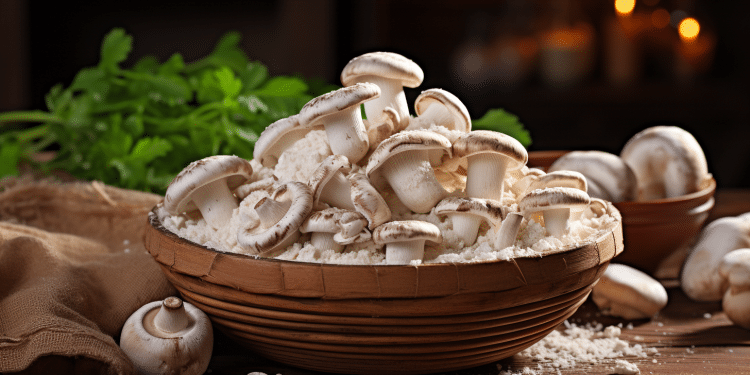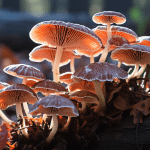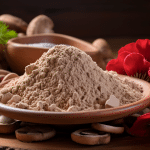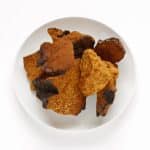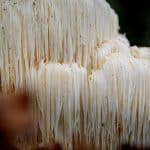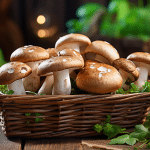Mushrooms are the mainstay of cuisines across a number of cultures. A delicacy for some, a food staple for others, mushrooms provide benefits to the body as a superfood.Mushrooms are not just tasty, they are packed with nutrients such as calcium, magnesium, phosphorus, and zinc.
They are an excellent protein supplement for a vegans diet, with multiple benefits to your skin, hair, and general well-being. Here are some lesser-known benefits mushrooms provide for skin and hair that you should be aware of, and how to consume them correctly!
Mushroom Benefits For Hair
Stop Hair Loss: Mushrooms are high in iron, capable of meeting daily iron needs, keeping issues such as anemia at bay. A diet high in mushrooms may help fight hair loss and encourage new hair growth.
Slows graying: Mushrooms are also known for having a high content of copper. This directly impacts melanin production in the blood, which is responsible for maintaining pigmentation of hair.
It supports your general health: As mentioned earlier, mushrooms are high in selenium. They are a crucial compound for building your hairs texture. Also used in a lot of hair products, regularly taking mushrooms can make your hair feel healthier and more shiny.
Learn more: Keto friendly mushrooms
Mushroom Benefits for Skin
Hydrate Skin: Mimicking the effects of hyaluronic acid, the polysaccharides found in mushrooms will hydrate the skin, making it feel soft and supple.
Treats pimples: Mushrooms are rich in Vitamin D, and applied topically, they help to reduce breakouts and heal acne. Skincare products made from fungi extracts are commonly used for acne treatments, and when added to the diet, they help boost the healing capabilities of the body, which can rebuild itself after the acne has been damaged.
Brightens skin: The kojic acid found in mushrooms gently exfoliates your skin from the inside out, and it will show off a glowing complexion.
It is a great food replacement to harsh external exfoliants.
It has anti-aging benefits: Mushrooms are high in antioxidants such as selenium, vitamin C, and choline. These essential nutrients combat the free-radical damage in your system and keep signs of ageing at bay.
Learn more: Mushroom beverage
Mushroom Benefits for Overall health
Promotes Heart Health: Mushrooms are high in fiber and potassium, which promotes heart health. They also help regulate blood pressure, which lowers the risk of high blood pressure.
Reduced Risk for Diabetes: Including dietary fiber in daily routines helps reduce your risk of developing type-2 diabetes. As little as 70 grams of mushrooms provide one gram of fiber to your body, with 20-25 grams being a daily need.
They may help prevent cancer: The antioxidants found in mushrooms are known to help prevent some types of cancer, including lung, prostate, and breast.
Burns down cholesterol: Although mushrooms are high in protein and enzymes, they are low in carbohydrates and are known for burning down cholesterol. They also help with digestion, helping with weight maintenance if consumed responsibly.
How to Pick The Best Mushrooms
Unlike other nutritious foods, mushrooms need additional care when harvesting. Look for ones that are firm, dry, and not bruised. You need to be certain about their freshness and viability in order to get the best out of the nutrients that are in them.
Fresh mushrooms are shiny and have no imperfections, are not wrinkled from dehydration, and have slightly glossy surfaces.
Avoid picking mushrooms out of the wild, Some are extremely toxic and could cause severe consequences. You should also consider buying from a local produce vendor, supermarket known for handling fresh greens, or farmers market. Check the labels, because it is known to be best when mushrooms are less than a week old.
How to Store Your Mushrooms
Stored mushrooms are one more crucial aspect to eating them correctly. Keep them in the packaging they came in until just before you cook. Store in the fridge; you can keep them fresher by keeping them in paper bags.
Stay away from foods with strong smells or flavors, because mushrooms have a tendency to soak those up. Never freeze mushrooms raw, they can, however, be frozen after being browned for a couple minutes.
How to cook mushrooms
Check out your mushroom batches prior to cooking. A dry, glossy, white surface indicates a fresh mushroom. But sticky/slimy surfaces that are darker mean this batch has gone bad.
Mushrooms can be prepared in many ways, since they do not require much cooking. Overcooking mushrooms will cause them to turn brown and limp. Sauteing and grilling are a few of the popular ways to prepare them.
Make sure you pat them dry with a paper towel before cooking, and remove the bottom portion of the stalk. You can prepare mushrooms whole, thinly sliced, or in pieces. But be sure to remove any mud or dirt from them before cooking them whole. Given they are grown in heavy soil, you may still find impurities trapped in the intricate cracks, even after washing several times.
Random Facts
The word fungus comes from the French, which means mushroom and mold. Mushrooms were first discovered in about 1650 by a Parisian melons farmer, who decided to grow them after they started growing in his crops. That is why, although popular in modern cooking, mushrooms have been used for centuries in the preparation of traditional foods across many cultures. The Chinese used them medicinally (for thick soups), ancient Romans and Greeks used them for banquets, and the Egyptians revered them for their flavor and texture.
FAQs about mushroom benefits
Can you eat mushrooms every day?
Yes, it is safer to eat mushrooms everyday. It is recommended that you eat around 6 button mushrooms each day for good health, and that you make sure that they are cooked well on the grill (or steamed).
Are there any harmful effects of mushrooms?
When prepared correctly, mushrooms do not have any adverse effects. It has been said that if one is not careful when cleaning them, some gastro-intestinal problems may occur. Bad mushrooms may even cause issues such as nausea, vomiting, abdominal cramps, and diarrhea.
Which variety of mushrooms is the healthiest?
Even if you are aware of the fact that most varieties of mushrooms are very healthy for you, there are some mushrooms which have taken top spots for a variety of reasons. Oysters and Shiitake mushrooms are among those with the highest fiber content. Maitake mushrooms and Portobello mushrooms grown in UV light are rich in Vitamin D. White mushrooms are just as healthy and will power up your body with lots of important nutrients.
